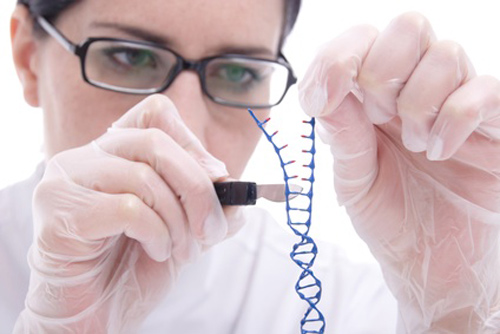
Best known for her pioneering work in the discovery of CRISPR, Jennifer Doudna, PhD, professor at the University of California, Berkeley, doesn’t stop or, it seems, even slow down. As of yesterday morning, Doudna can add “accept Nobel Prize” to her to-do list as she, along with Emmanuelle Charpentier, PhD, was awarded the 2020 Nobel Prize in Chemistry. “Start a new company” seems to repeatedly make its way onto her to-do list as well. This week, another Doudna lab spin out, Scribe Therapeutics, came out of stealth mode to announce their plans to build a platform for CRISPR-based genetic medicine with news of a new Biogen collaboration to create therapeutics for genetically-driven ALS. Scribe joins other Doudna startups Caribou Biosciences, Editas Medicine, and Mammoth Biosciences.

Scribe’s platform is focused on engineering, delivering, and developing novel, custom CRISPR molecules. The company’s first technology, X-Editing (XE), provides greater editing activity, specificity, and deliverability than other CRISPR genome editing tools currently available.
“Scribe’s technology and long-term engineering approach can help establish CRISPR-based therapies as a new standard of clinical care and expand access to groundbreaking treatments that will impact millions of lives,” said Doudna.
Under the terms of the collaboration, Scribe—with under 25 employees—will work with Biogen to create therapeutics for genetically-driven ALS, with an option to pursue an additional neurological disease target with high, unmet need. Scribe will receive $15 million upfront and is eligible for more than $400 million in potential development and commercial milestone payments between the two targets of interest.
At the center of Scribe sits the CasX enzyme, discovered in the Doudna lab in February 2019. This relative of Cas9 has multiple properties that make it an attractive cornerstone to building a gene editing company. The enzyme is active, specific, and small. In fact, it is smaller than the smallest Cas9, which makes it able to fit into delivery systems such as AAV vectors. According to LinkedIn, AAV delivery is a direction Scribe is heading in as they are currently looking for an AAV specialist to work closely with a core engineering team to “creatively design, rapidly build, and efficiently screen AAV vectors for the optimal delivery of genome editing tools to CNS tissues.”
“Much like diverse CRISPR-Cas systems occur widely in nature,” noted Rodolphe Barrangou, PhD, professor in the department of food, bioprocessing, and nutrition sciences, North Carolina State University, “a variety of Cas effectors can be used by various co-existing CRISPR start-ups that harness different flavors of these amazing molecular machines.” In this case, the biochemistry driving targeting and cleavage has the advantage of generating nicks, rather than breaks, and the smaller size of these effectors enables easier packaging for delivery.
The intent to build tools “sets Scribe apart,” asserted Scribe’s CEO and co-founder, Ben Oakes, PhD—a former Doudna graduate student who was co-mentored by David Savage, PhD, associate professor of biochemistry, biophysics, and structural biology, while at Berekley.
Oakes noted Savage’s insights on engineering from a topological perspective, coupled with his own engineering experience, are what drives how they approach making better molecules.
Oakes tells GEN that they are not satisfied with using CasX as it is and are working to reengineer it so that it could be a therapeutic. Instead of starting from the limitations that a Cas enzyme holds, and figuring out what can be done, Oakes said that they want to move from discovery to design without those limitations. To do that they consider CasX to be a trunk that they are branching off of and have already taken over 100 steps in sequence space away from the original molecule.
With Scribe, the trend of Doudna lab alumni being given a chance to creatively pursue business interests outside of the lab continues. Doudna’s supportive leadership, according to Oakes, is a contributing factor to Scribe’s getting off the ground. And, if her support of young entrepreneurs shares even a fraction of the success she has achieved in her other endeavors, Scribe will be curing diseases in no time.













